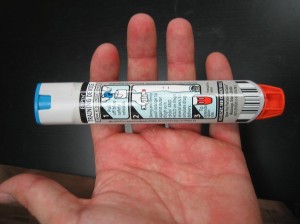Scallop is a shellfish typically present in various seafood dishes. If an individual ends up with an adverse reaction after eating or directly handling scallops, a doctor should be informed right away.
One can end up with scallop allergy and to other shellfish such as mussels and oysters later in life, even if the individual was able to eat them before without any issues.
How do I know if I have scallop allergy?

- Consult a doctor if a scratch test is needed to determine if allergic to scallops. During the test, the doctor creates small, painless scratches on the forearm and expose the site to a small amount of the allergen. A minor reaction such as swelling or redness indicates that the individual has an allergy.
- Check for minor indications of an allergic reaction after unintentionally consuming or directly handling scallops. The indications of a reaction include hives, flushed face, tingling of the skin and lip as well as swelling of the lips and face. In some cases, there is abdominal pain, faintness, diarrhea, cramping and vomiting.
- Carefully check the food labels if an individual is suspected with an allergic reaction. Foods that might be contaminated with scallop or other shellfish include pizza toppings, rice dishes, sauces, salad dressings, broths, soups, spreads and gelatin-based foods. In addition, sushi and fish might also include shellfish contaminants.
- Observe if an individual experience any symptoms if near scallops being cooked. It is important to note that if shellfish is cooked or heated, the proteins become airborne. If these vapors are inhaled, an allergic reaction occurs.
A high-risk individual should carry an auto-injectable epinephrine. This medication must be administered right away to lessen the symptoms of an allergic reaction.
If an individual experience a severe reaction or anaphylaxis, it is vital to seek medical attention. This reaction includes difficulty breathing, swollen tongue and throat, rapid heartbeat and drop in the blood pressure.
